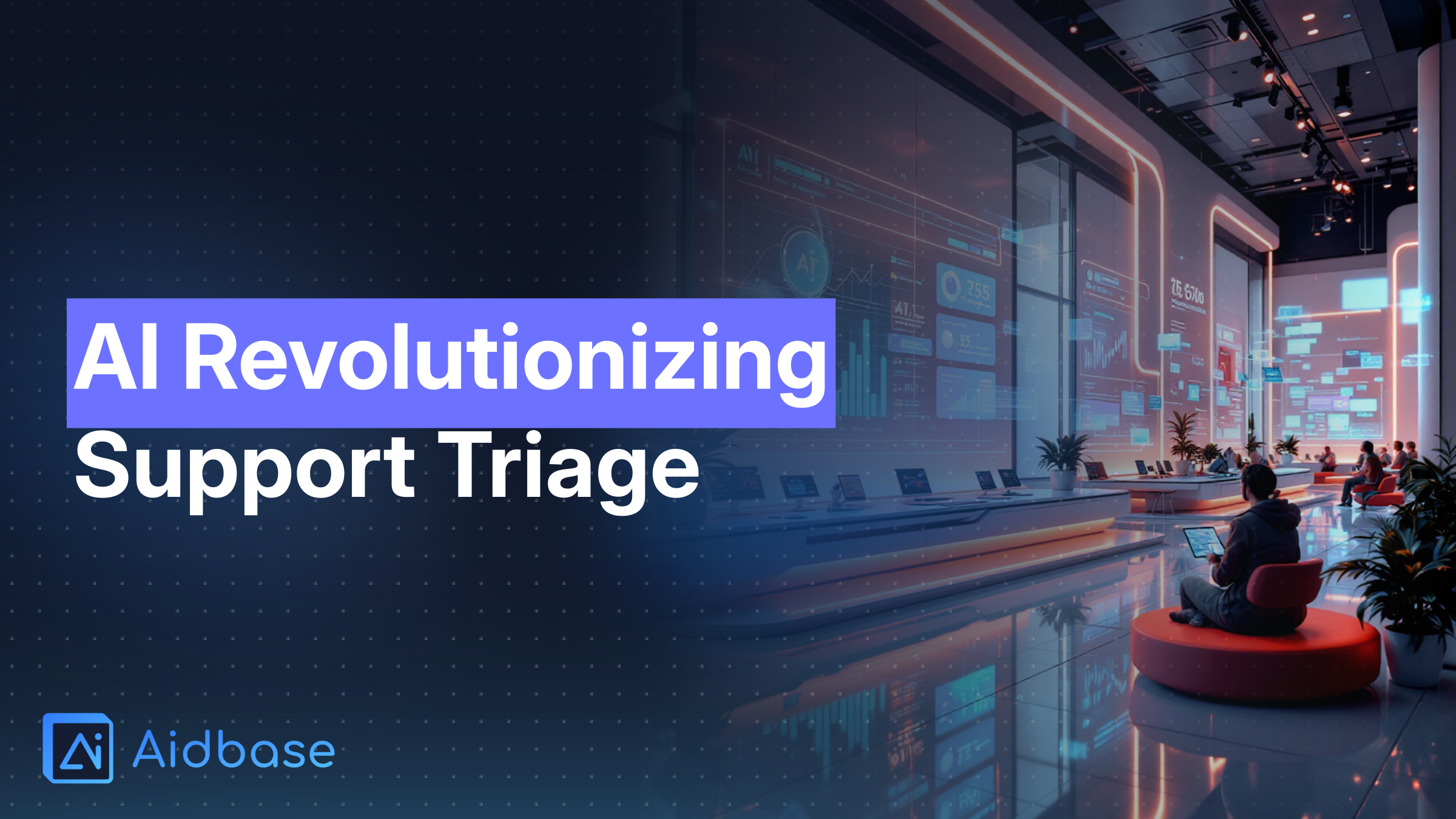Artificial intelligence is revolutionizing customer support by automating t...

In today's rapidly evolving support landscape, artificial intelligence is at the forefront of driving innovation and efficiency. The migration from manual ticket handling to smart, AI-driven support triage is transforming how companies manage customer inquiries, resolve issues faster, and boost customer satisfaction levels. This post takes a deep dive into this transformation, examining the history, challenges, benefits, and promising future of AI in support prioritization.
AI-powered support triage has fundamentally changed the way customer service teams handle the influx of tickets. By analyzing real-time data, these systems are capable of discerning the urgency and complexity of each issue, automating the prioritization process. As a result, support teams can now focus on high-value interactions that require human intervention while ensuring that simpler issues are addressed promptly through automated responses.
Recent research indicates that the integration of AI in support processes has reduced resolution times by up to 50%, a statistic that underscores the efficiency gains made with this technology. This improvement not only alleviates workload pressures on human agents but also significantly enhances customer satisfaction by reducing wait times.
Before the advent of AI, customer support operations were largely dominated by manual systems. These traditional systems required agents to review and prioritize tickets based on subjective judgments. The reliance on human triage often led to inconsistencies and delays. Agents would sort through tickets in a first-come-first-serve manner or rely on limited filtering criteria, which sometimes resulted in urgent issues being overlooked.
Historically, this manual sorting was not only time-consuming but also prone to error, contributing to longer resolution times and increased operational costs. The shift towards intelligent systems represents a quantum leap in managing the complexities associated with customer support, as highlighted by various industry studies from sources like Sobot.io.
Customer support teams using traditional methods frequently encountered challenges such as:
These challenges can impede the overall service quality and hinder customer satisfaction. AI addresses these issues by automating the initial screening process. Through machine learning and natural language processing techniques, AI systems now dynamically adjust to increased workloads, ensuring high-priority issues are immediately accessible for further attention.
One of the groundbreaking capabilities of AI in support triage is its ability to analyze and interpret urgency and sentiment within customer communications. Advanced algorithms evaluate textual and contextual clues in customer queries. This process includes:
This intelligent interpretation allows AI tools to differentiate tickets that need immediate human intervention from those that can be resolved through automated processes. The result is a more nuanced and accurate ticket prioritization system that reduces resolution times and heightens overall customer experience. Research supporting these advancements can be found at CloudTweaks.
Numerous companies have already embraced AI in their support operations with impressive results:
ServiceNow: Their AI agents autonomously handle up to 80% of customer inquiries. This automation has led to a 52% reduction in the time required for complex case resolution, creating an estimated annualized value of $325 million through improved productivity. (SuperAGI)
Comcast: Implementation of an "Ask Me Anything" AI co-pilot has reduced search time by 10%, streamlining case resolution by providing rapid and accurate answers to complex questions. (CloudTweaks)
H&M: The retail giant has utilized an AI-powered chatbot to cut down response times by 70%, significantly improving service efficiency and customer satisfaction. (Doo)
These examples showcase how real-world applications of AI are reshaping customer support by making it more reactive and efficient.
While several AI solutions have transformed customer support, tools like Aidbase stand out for their blend of advanced algorithms and user-friendly integrations. Here’s how Aidbase compares with other AI-driven support tools:
Other tools, such as Zendesk’s AI-powered Resolution Platform, are also effective but might not offer the same level of customization and integration ease that Aidbase provides. This comparative advantage is increasingly becoming a decisive factor for businesses looking to optimize their support operations.
The strategic incorporation of AI into support systems directly influences several key performance indicators, including:
These benefits, substantiated by research from sources like Futuramo and WebEx Blog, illustrate the compelling ROI of leveraging AI in everyday support functions.
The future of support triage looks increasingly promising with the evolution of large language models (LLMs). As these models become more accurate and context-aware, their ability to understand nuanced customer intent will further refine the support process. Some future developments include:
As businesses continue to refine their processes, the integration of evolving AI technologies is poised to drive unprecedented levels of customer service excellence.
The journey from manual ticket handling to sophisticated, AI-powered triage represents a significant transformation in customer support. By automating routine tasks and providing data-driven insights, AI enhances operational efficiency and customer satisfaction. Companies that embrace these innovations—notably, leveraging powerful tools such as Aidbase along with other state-of-the-art platforms—position themselves to meet the increasing demands of today's digital consumer landscape.
As AI continues to evolve and large language models become even more adept at understanding customer intent, the future of support operations holds immense promise. With faster resolution times, reduced costs, and improved customer relationships, the integration of AI into support prioritization is a win-win evolution for businesses and their clients alike.